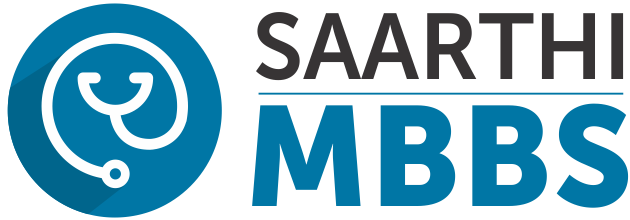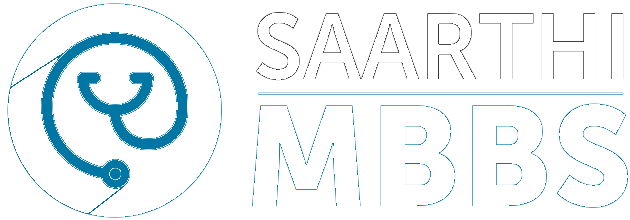United States Medical Licensing Examination
To be certified by ECFMG, international medical graduates must, among other requirements, pass a medical science examination. Step 1 and Step 2 of the United States Medical Licensing Examination™ (USMLE) are the exams currently administered that meet the medical science examination requirement for ECFMG certification. To meet the medical science examination requirement for ECFMG certification, you must pass both Step 1 and Step 2. You can take Step 1 or Step 2 in either order, provided you meet the eligibility requirements for these exams.
Step 1
is the basic medical science component of the medical science examination. Step 1 assesses whether you understand and can apply important concepts of the sciences basic to the practice of medicine, with special emphasis on principles and mechanisms underlying health, disease and modes of therapy.
Step 2
is the clinical science component of the medical science examination. Step 2 assesses whether you can apply medical knowledge and understanding of clinical science essential for the provision of patient care under supervision and includes emphasis on health promotion and disease prevention.
In 1999, the United States Medical Licensing Examination was converted from paper and pencil format to computer-based format. As a result, paper and pencil administrations of Step 1 and Step 2 are no longer offered. Computer-based based administrations of Step 1 and Step 2 are offered continuously at test centers worldwide. You can apply for Step 1 and Step 2 at any time, provided you meet the eligibility requirements for these exams.
Eligibility
The eligibility requirements for Step 1 and Step 2 differ depending on whether you are a medical school student or a medical school graduate.
Important Note : If your eligibility for an exam changes after you apply but before you take the exam, you are required to inform ECFMG immediately of this change in your status.
Medical School Students
To be eligible for Step 1 and Step 2 , you must be officially enrolled in a medical school located outside of the United States and Canada that is listed in the International Medical Education Directory (IMED) of the Foundation for Advancement of International Medical Education and Research (FAIMER) , both at the time that you apply and at the time you take the exam. In addition, the “Graduation Years” in IMED for your medical school must be listed as “Current” at the time you apply and at the time you take the exam. Your Medical School Dean, Vice Dean or Registrar must certify your current enrollment status on the application. This certification must be current ; the official must have signed the application within four months of its receipt by ECFMG. As soon as you graduate and receive your medical diploma, you must send two photocopies of your medical diploma and one full-face photograph to ECFMG (see Provision of Credentials and Translations ). The photograph that you send must be current; it must have been taken within six months of the date that you send it. A photocopy of a photograph is not acceptable.
In addition to being currently enrolled as described above, to be eligible for Step 1, you must also have completed at least two years of medical school. This eligibility requirement means that you must have completed the basic medical science component of the medical school curriculum by the beginning of your eligibility period for Step 1.
In addition to being currently enrolled as described above , to be eligible for Step 2, you must be within twelve months of completion of the full didactic curriculum by the beginning of your eligibility period for Step 2.
ECFMG reserves the right to re-verify with the medical school the eligibility of medical school students who are registered for Step 1 and Step 2. If ECFMG requests re-verification of your student status with your medical school, ECFMG will release your score report for the USMLE Step 1 and / or Step 2 only after re-verification of your status has been received by ECFMG.
The United States Medical Licensing Examination
The United States Medical Licensing Examination is a single, three-step exam for medical licensure in the United States . The USMLE provides a common system to evaluate applicants for medical licensure. The United States Medical Licensing Examination is sponsored by the Federation of State Medical Boards of the United States, Inc. (FSMB) and the National Board of Medical Examiners ® (NBME ® ). The USMLE is governed by a committee consisting of representatives of FSMB, NBME, ECFMG and the American public.
You can take Step 1 and Step 2 in either order, provided that you meet the respective eligibility requirements for these exams. However, before applying for Step 3, you must have received official notification that you have passed both Step 1 and Step 2.
For descriptive information about the content of Step 1 and Step 2, refer to The Three Steps of the USMLE on page 2 and Examination Content on page 6 of the USMLE Bulletin of Information . For information on the format of these exams, refer to Format of the Exams in this publication and to Test Lengths and Formats on page 9 of the USMLE Bulletin of Information . Sample test materials for Step 1 / Step 2 are available on this website, the USMLE CD and on the USMLE website at www.usmle.org.
The Practice Sessions use many of the same sample test materials that are available on the USMLE website and on the USMLE Orientation CD; however, the Practice Session does not include any multimedia items and uses an older version of the test delivery software (FRED V1). NO NEW SAMPLE TEST MATERIALS ARE PRESENTED AT PRACTICE SESSIONS.
Step 1 and Step 2 CK
The Practice Session is a maximum of 3.5 hours and is divided into three 1-hour blocks of 46-50 multiple-choice test items each. When you complete the session, you will receive a printed percent correct score.
Step 3
The practice session is a maximum of 4 hours and includes five blocks that vary in number of multiple-choice test items and three Premium® Computer-based Case Simulations (CCS). All of the test items and Premium cases used in the Practice Session are drawn from the Step 3 practice items on the USMLE website or on the USMLE Orientation CD. When you complete the session, you will receive a printed percent correct score for the multiple-choice items and feedback on the Premium CCS cases.











